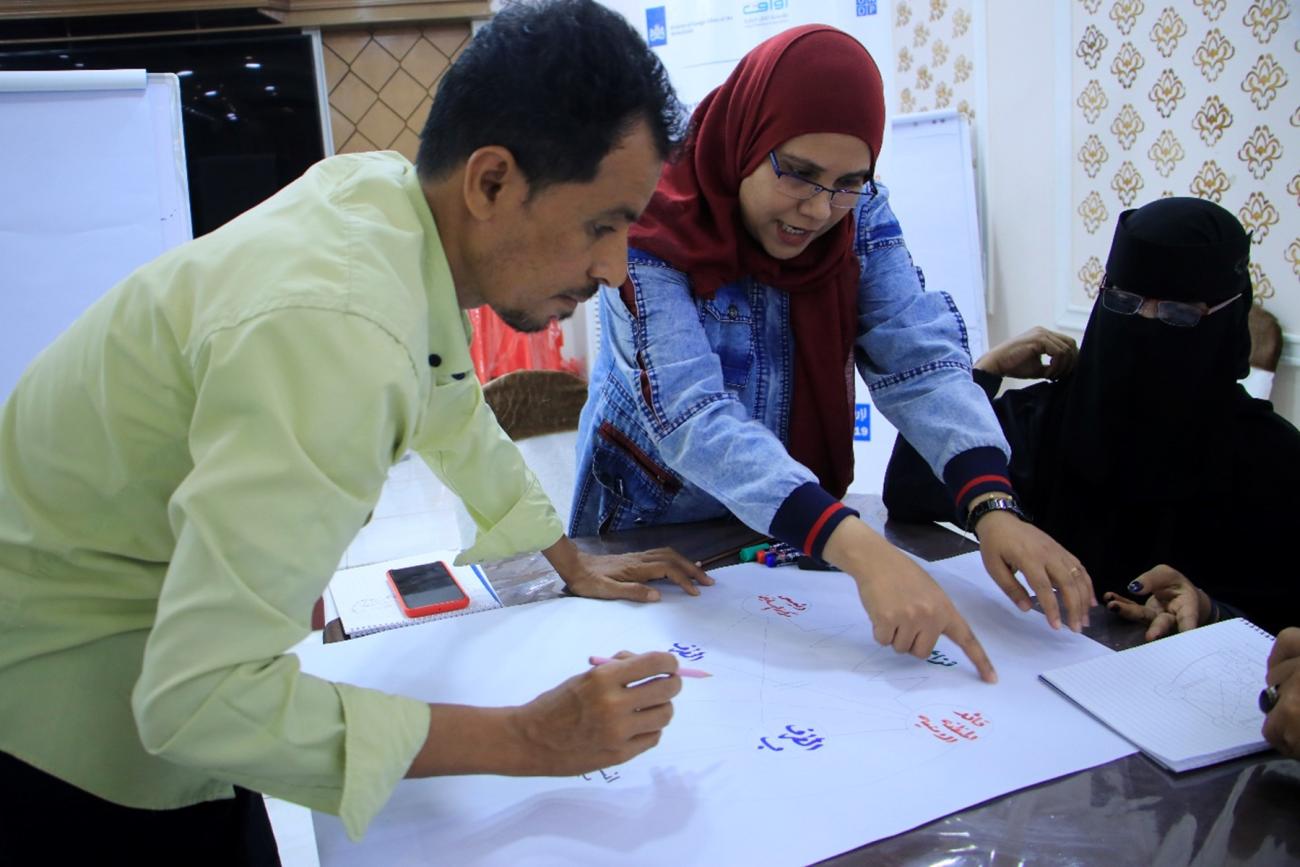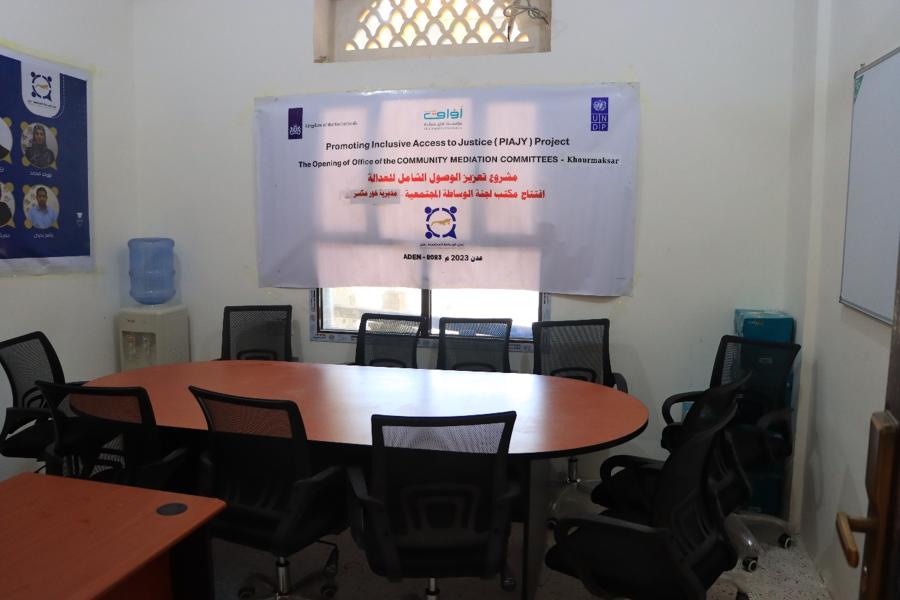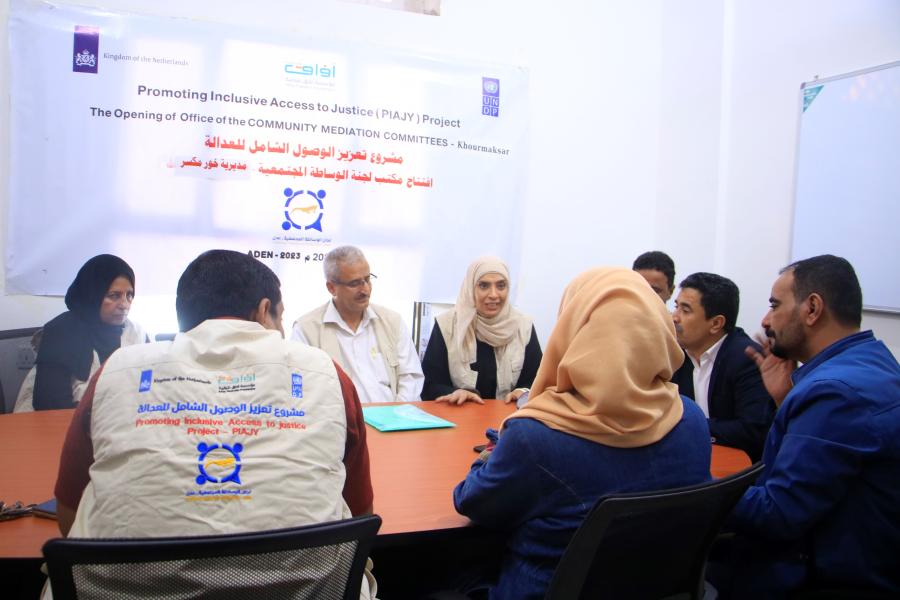UNDP Yemen:Restorative Justice in Action: Community Mediation Committees in Yemen

--
Ensuring that Yemen’s citizens are safe and secure with access to effective justice is paramount to sustainable development, following years of conflict.
Amidst many challenges faced by public institutions in Yemen, detention centers in Aden Governorate have become overcrowded, often reaching three times their capacity. Many of these detainees are held for reasons related to societal and family disputes.
To support local authorities and community members, the United Nations Development Programme (UNDP) in Yemen has assisted with the formation of six Community Mediation Committees (CMCs) in six districts of Aden. These committees, operating as part of UNDP’s Promoting Inclusive Access to Justice in Yemen (PIAJY) Project, with support from the Kingdom of the Netherlands, and in partnership with Afaq Shababia Foundation, aim to resolve issues such as financial disputes, and non-physical civil conflicts.

Throughout the year, community members have received training to become mediators within the committees. Their role is to resolve disputes among community members, working in collaboration with the police to expedite problem solving and alleviate pressure on security services.
Resolving Community Disputes with Mediation
Tasheed Abdo, member of a Community Mediation Committee, received training in community mediation and conflict resolution provided through the PIAJY Project. Equipped with these skills, she successfully addresses issues faced by detainees. She has mediated between conflicting parties to reach mutually satisfactory solutions, thereby avoiding prolonged detention without explicit charges.
“My primary focus was on resolving debt-related issues. I managed to secure the release of three detainees who had been held at the local police station for several months due to outstanding debts amounting to 800,000 Yemeni rials, equivalent to almost $800,” says Tasheed.
In Khormaksar District, Hassan Al-Hanashi, another member of a CMC, worked on a case involving the release of a detainee who had been held for nearly six months. The case required extensive follow-up, particularly regarding the detainee's family, who reside in another governorate and were unaware of the situation.
Hassan, as the mediator, established contact with the victim, and discussed settling the case, securing the detainee's release after multiple discussions and mediations.
"I arranged for the complainant to attend a second session and coordinated with the police station. The case was settled, the complaint was withdrawn, and an agreement was reached between the parties, leading to the judge ordering the detainee's release," Hassan explains.

Community Mediation Committees Make a Difference
Sanaa Jameel was selected as a community mediator in Sheikh Othman District due to her active role in the community. Over a span of three weeks, Sanaa and her colleagues underwent intensive training in community mediation skills, law, the restorative justice system, and conflict resolution techniques.
"My involvement in the CMC has had a profound impact. We have effectively reached out to detainees, resolving numerous cases in detention centers. The community has wholeheartedly embraced our efforts, which serves as a constant motivation for our work."
Together with local authorities, Community Mediation Committees have contributed to improving conditions within detention centers and facilitated the establishment of offices in coordination with local authorities to ensure the continuity of their work.
In the first quarter of 2023, a total of 1,296 pre-trial detainees in Aden received legal counseling from six women lawyers, with support from 60 community mediators, through the PIAJY Project. Case profiles were created for these detainees, and based on their cases, they were referred to community mediation processes. A total of 138 of those involved in civil and minor offenses were released through community mediations.
UNDP's Promoting Inclusive Access to Justice in Yemen (PIAJY) project is dedicated to strengthening the resilience of institutions and communities. It aims to foster community safety and security initiatives, facilitate accessible justice, promote gender-inclusive rule of law institutions, and enhance women's participation and leadership in delivering inclusive justice services.

